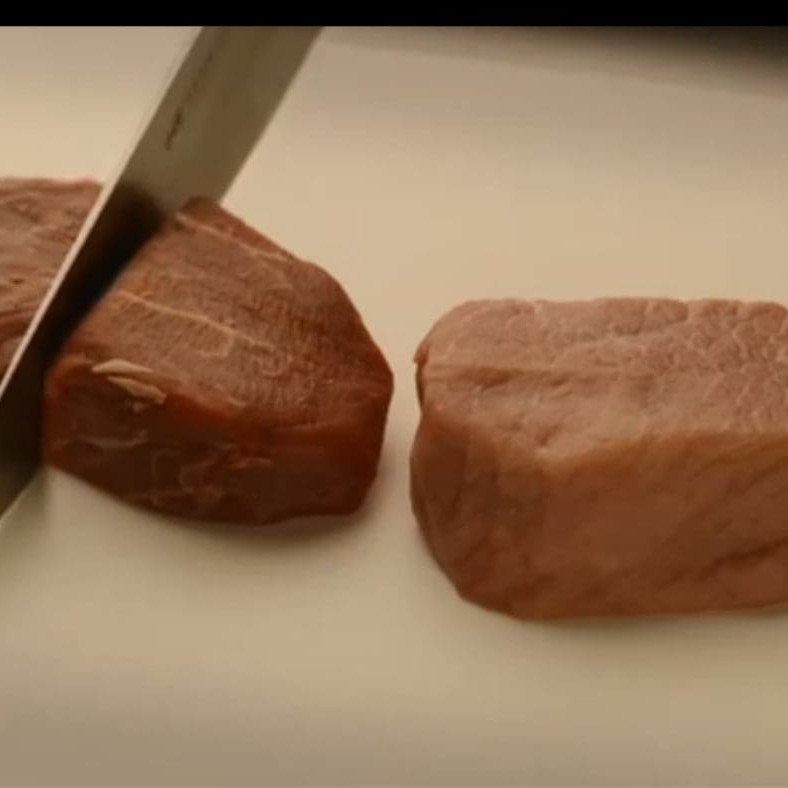 The red meat industry has had a significant victory over one of its white meat protein competitors over television advertising claims that pork contains just half the fat of red meat.
The red meat industry has had a significant victory over one of its white meat protein competitors over television advertising claims that pork contains just half the fat of red meat.
Meat & Livestock Australia challenged Australian Pork Ltd via the Advertising Standards Bureau over dietary claims made in APL’s recent TV advertising.
The Bureau’s independent advertising claims board panel upheld MLA’s complaint that the advertising breached a section of the advertisers’ code of ethics, and ordered that APL’s advertising be modified or discontinued.
The offending pork advertisement (click here to view) has been airing on free-to-air TV since September last year.
The commercial begins by showing a beef steak next to a similarly-sized pork steak, and a woman saying, “Two juicy steaks, the big difference is, one has half the fat of the other…. Well, unless I do this.”
The woman then cuts the beef steak in half and removes one half from view.
The commercial then carries a visual of the same pork steak in a meal on a plate while the same woman’s voice says, “Australian pork, half the fat of red meat and a valuable source of iron.”
Briefly superimposed on the picture of the meal while the woman is talking are the words: 'Based on 200g raw trimmed lean meat (pork v 50:50 beef and lamb).’
Part of MLA’s argument to the advertising claims board centred on the messages which it claimed were untrue and misleading, particularly in that the ad suggested that pork had half the fat of red meat of equivalent weight, regardless of cut, how the product was trimmed, or whether it was beef or lamb.
It also challenged the use of words superimposed on the screen, and how that message is presented and interpreted.
Part of APL’s defence was that there was no suggestion in the advertisement that the specific comparison was applicable in a general sense to all cuts of red meat, but was clearly a comparison of two specific products.
“It clearly qualifies the basis of the claim as comparing 200g of raw, trimmed lean meats,” APL claimed. “Consumers already rate beef as lower in fat than lamb, so this does not need further explanation,” it said.
Both MLA and APL submitted evidence to the advertising claims board concerning the calculation and comparison of fat levels in pork and lamb and/or beef.
The board noted that the calculations differed, with the complainant (MLA) relying on Food Standards Australia New Zealand’s NUTTAB 2010 data whilst the advertiser (APL) presented data it had prepared itself, which had been peer-reviewed and published.
APL maintained that the NUTTAB data reflected outdated information regarding nutritional composition of pork cuts.
“The first part of the commercial is very powerful,” the board said in its findings.
“It does not claim less fat in the pork steak; it claims half the fat of the beef steak and graphically underlines this by removing half the beef steak from view. The Board believes that this specific message in itself may lead to a more general inference being drawn by a consumer about the comparative fat content of all pork and, at least, beef products and quite possibly both beef and lamb products.”
“This general inference is reinforced by the general and also powerful message contained in the voice-over which makes the unequivocal and general claim: 'Australian pork, half the fat of red meat…'.”
The board stopped short of awarding damages to the beef industry over the claim, saying that while it considered that the commercial certainly may cause damage to the business of beef producers, particularly as the intention was clearly to encourage consumers to buy pork as opposed to red meat, there was no evidence that it was 'likely' to cause that damage.
“The Board wishes to make it clear that this is not a finding that damage to the business of beef producers and possibly significant damage, would not result from the broadcasting of the advertisement. The board members simply do not know if this is likely,” it said.
In a statement to the ASB’s advertising claims board, APL undertook to modify the advertisement, and said it had taken steps to withdraw it at the earliest available opportunity, pending such modification.
